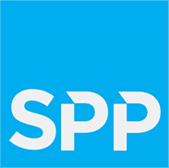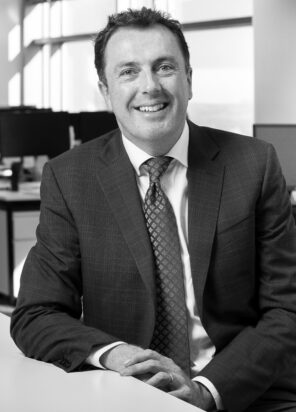Insights
Innovative Education Models – how to measure impact


With an inspiring line-up of speakers, SPP’s Leadership Panel Breakfast held on Monday, 4 March was attended by principals and educators, education and government stakeholders, eager to discuss the opportunities and challenges of innovative education models.
Luthern Williams, Head of School at the New Roads School in Los Angeles, USA, kicked off the session by discussing the importance of understanding the context of the broader community in which a school operates, and leveraging that context to inform education delivery.
New Roads was established in 1995, with the ambition of ‘tearing down the wall between school and life.’ Situated in the heart of LA and mirroring the rich diversity of the city, the school boasts staggering diversity statistics:
- 50% of families receive some aid
- 34% of students in class of 16-17 first-generation college students, all went to universities, including some of the most selective in the United States
- 45% of student cohort are students of Color; 40% Teachers of Color; 42% Administrators of Color
- 28% Board Members of Color; 50% Women on Board, including Board Chair; LGBTQ representation on Board; Socio-economic Diversity on Board
- Students from 109 Zip Codes
- K-12 model.
 Ben Apted, Senior Partner, SPP
Ben Apted, Senior Partner, SPP
“When we work with our clients, we’re focused on the importance of being clear on what sort of return they are after, and being able to value this.”
 Luthern Williams, Head of School, New Roads School LA, USA
Luthern Williams, Head of School, New Roads School LA, USA
Luthern talked about the school’s ambition for integration, with diversity in its DNA – racially, socially, and culturally reflective of LA. “Diversity,” says Luthern, “is the foundation of the school’s social benefits as well as academics and artistic excellence.”
This is a notion that Wesley College Institutes’ Executive Director of Curriculum and International Strategy, Isaac Quist, agrees with. Isaac spoke about some of the Wesley College Institute’s key curriculum programs such as Clunes and the Kimberley student experiences, as well as Wesley’s residential settings.
“Clunes is a place where the kids go for a term. They work in and for community benefit – they live together and are responsible for their own management of daily routine, food, finances, and carbon footprint, all with a focus to benefit the community,” says Isaac. “Similarly, the Kimberley Campus houses 80 indigenous students in a residential program, with specific aim to benefit to community.”
Wesley’s leadership team has championed ‘student agency’; that is, genuinely giving students say in how programs are developed, designed and delivered.
In a conversation leading up to our event, one of the key issues identified by Andrew Blair AM, Executive Director of Wesley College Institute, is the difficulty in measuring and communicating the impact of activities in community benefit programs.
Challenges in trying to affect change and develop new or innovative education programs, as well as developing proposals for funding opportunities
SPP’s Senior Partner and Education Lead Ben Apted says – “At some point, you need a rigorous framework. You need to be able to value the activities whether you’re an institute, a school or government. You need to be able to articulate why something is a good idea. And communicate that with measured expectation and do it in a tangible way.”
Ben talked about the SPP’s Social Impact Framework, which was initially developed to provide a common language for research impact assessment, when comparing a portfolio of research projects. The framework assesses and justifies the actual and potential project across financial and non-financial dimensions.
Ben says, “It’s a perfect case study to apply to New Roads School’s ‘Centre for Human Development and Common Good’ or Wesley College Institute’s student programs like Clunes, or other for schools, or indeed the education system, where there is competition for funding and for ideas.”
In seeking to develop an approach to measure social return on investment, Ben cited the challenges many in the audience have or are facing include: Tightening fiscal environments in some cases; significant number of social investment options, each made with a very passionate case; difficulty in finding the evidence base; and, for some ideas, particularly in research, “when you’re advancing knowledge towards an impact; you’re not necessarily delivering an impact with your project, which makes your case even harder”, says Ben.
Driving a need to develop a better approach to measuring impact
“You need a mechanism to communicate ROI in whatever form that might be. You need an approach to compare across a portfolio of options. How are you going to make a case for a social investment that benefits a community, knowing that there is another proposal sitting alongside that, which has a 10% internal rate of return for decision-makers to elect to fund?”
Without going into absolute detail of the approach, Ben cited examples of using the Framework for a university that wanted to review a portfolio of research projects. “The stakeholder wanted to be able to say, ‘I’ve got $10M, where should I invest this for the greatest return?’” says Ben. “It’s a hard question to answer, but the question needs to be ‘What sort of return are you after’?”
Ben continues, “We’ve used the Framework in government, who are interested in understanding, for a portfolio of investment to create economic opportunity, how should they invest. And we’ve also started to use it to demonstrate long term additional investment for philanthropic investments.”
Consistency of definition is required within the approach and, more often now, consultation with stakeholders whomever they may be. This means that it’s not just about the idea of the way the case is made, but there is genuine buy-in to making it happen.
“When we work with our clients, we are focused on the importance of being clear on what sort of return they are after, and being able to value this,” Ben says.
Key Contacts
Ben Apted / Senior Partner
Ben Apted is the Senior Partner of SPP. Ben leads SPP's Education, Research and Digital Practices. Ben is a thought leader and contributor nationally and internationally on higher education strategy, engagement and operations. He has led transformation of government service...
Connect on email
Connect on LinkedIn

